| Institution |
Course details |
|
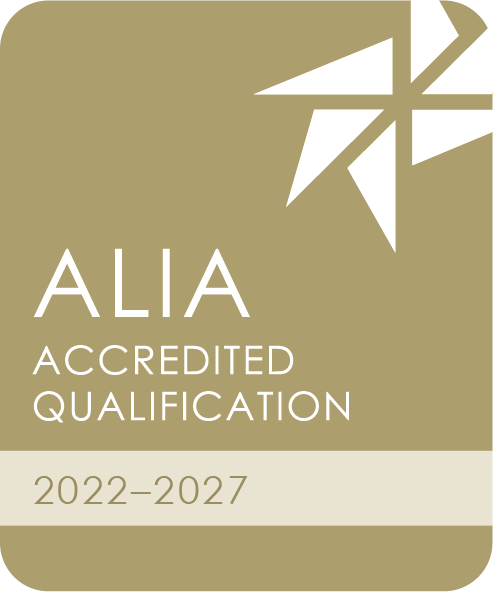
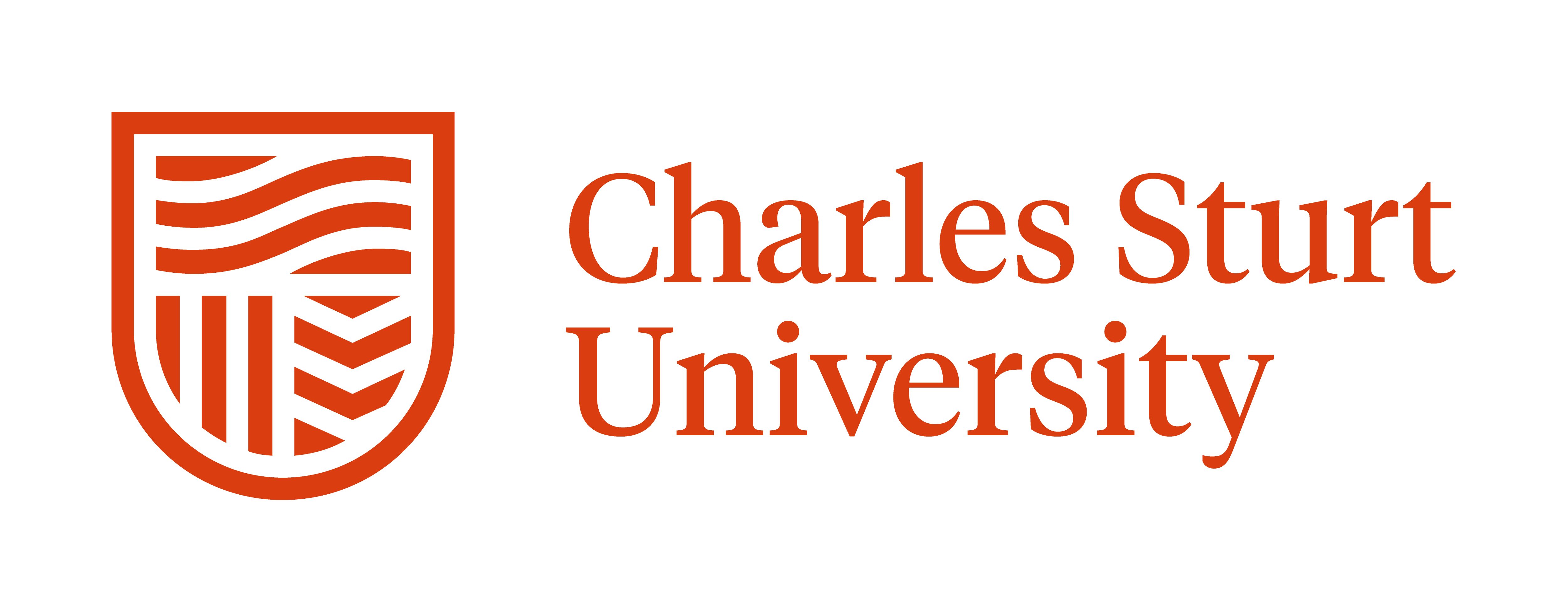
Charles Sturt University
|
Bachelor of Information Studies (with specialisations)
Study mode: Online
ALIA accredited until September 2027.
The Bachelor of Information Studies (with specialisations) at Charles Sturt University (CSU) is designed to produce graduates with a critical understanding of the importance of information and knowledge management across a wide range of fields and institutions. The degree is an entry point to the information professions providing graduates with understanding of the creation, evaluation, collection, organisation, utilisation and dissemination of information in the contemporary world. It provides opportunities to specialise in Librarianship, Records and Archives Management and Information and Knowledge Management and in 2019 Children’s Librarianship. Delivered via online study, the course is offered in an environment which supports the need for flexibility in the 21st century without compromising quality. The degree provides a range of practical experiences to support student learning. CSU’s School of Information Studies (SIS) is one of the world’s leading providers of education for the information industries and has been educating and researching in the Information and Library Studies field for more than 40 years.
|
|


Charles Sturt University
|
Master of Information Studies (with specialisations)
Study mode: Online
ALIA accredited until September 2027.
Early exit with ALIA accredited Graduate Diploma available
The Master of Information Studies (with specialisations) at Charles Sturt University (CSU) is designed to prepare leaders for the information professions in a wide range of fields. The course offers graduates the opportunity to specialise in Librarianship, Leadership, Children’s Librarianship, Information Architecture, Information and Knowledge Management, Data Management and Records and Archives Management. The degree offers a wide range of electives within these fields. Study is delivered in a flexible learning environment with practical experiences aimed at supporting learning. Delivered via online, the course is offered in an environment which supports the need for flexibility in the 21st century without compromising quality. The degree provides a range of practical experiences to support student learning. CSU’s School of Information Studies (SIS) is one of the world’s leading providers of education for the information industry and has been educating and researching in the Information and Library Studies field for more than 40 years.
|
|
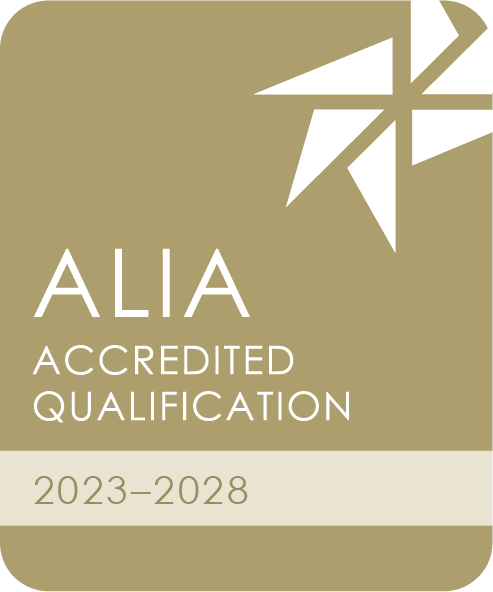

Curtin University
Associate Professor Gaby Haddow
Course Coordinator
|
For new students
New courses accredited by ALIA until 31 December 2028
Master of Information Science
Study mode: Online
Graduates of the Master of Information Science are qualified to work as librarians, archivists and records managers in a diverse array of organisations. In this course, you will learn how to apply your knowledge in different work environments, such as public and academic libraries, community and national archives, and government and corporate records offices. You will gain the skills and expertise to collect, organise, access, curate and preserve information in ethical and meaningful ways. These skills will equip you to develop and manage services and collections that document our history, inform the present and engage communities. Two three-week practicum placements in a records and/or archives setting and a library or information centre will give you real-world experience and the opportunity to develop your professional networks. This course can be a pathway to a Master of Information Science (Extended).
Master of Information Science (Extended)
Study mode: Online
Graduates of the Master of Information Science (Extended) are qualified to work as librarians, archivists and records managers in a diverse array of organisations. In this course, you will learn how to apply your knowledge in different work environments, such as public and academic libraries, community and national archives, and government and corporate records offices. You will gain the skills and expertise to collect, organise, access, curate and preserve information in ethical and meaningful ways. These skills will equip you to develop and manage services and collections that document our history, inform the present and engage communities. Two three-week practicum placements in a records and/or archives setting and a library or information centre will give you real-world experience and the opportunity to develop your professional networks.
The Extended Master course provides students with the choice of completing a substantial research project or undertake an internship of 25-30 days in an archives, library or records work environment.
Graduate Diploma in Information and Library Science
Study mode: Online
A Graduate Diploma in Library and Information Science will qualify you to work as a librarian in a many different organisations, such as public, academic and special libraries. You will gain a strong understanding in the theoretical concepts that underpin information science and the techniques, technologies and tools used in modern library and information management settings. A three-week practicum placement in a library or information centre will give you real-world experience and the opportunity to develop your professional networks. This course can be a pathway to a Master of Information Science and the Master of Information Science (Extended).
|
|



Open Universities Australia
Associate Professor Gaby Haddow
Course Coordinator
|
OUA new courses accredited by ALIA until 31 December 2028
Master of Information Science (OUA)
Study mode: Online
Graduates of the Master of Information Science are qualified to work as librarians, archivists and records managers in a diverse array of organisations. In this course, you will learn how to apply your knowledge in different work environments, such as public and academic libraries, community and national archives, and government and corporate records offices. You will gain the skills and expertise to collect, organise, access, curate and preserve information in ethical and meaningful ways. These skills will equip you to develop and manage services and collections that document our history, inform the present and engage communities. Two three-week practicum placements in a records and/or archives setting and a library or information centre will give you real-world experience and the opportunity to develop your professional networks. This course can be a pathway to a Master of Information Science (Extended).
Master of Information Science (Extended) (OUA)
Study mode: Online
Graduates of the Master of Information Science (Extended) are qualified to work as librarians, archivists and records managers in a diverse array of organisations. In this course, you will learn how to apply your knowledge in different work environments, such as public and academic libraries, community and national archives, and government and corporate records offices. You will gain the skills and expertise to collect, organise, access, curate and preserve information in ethical and meaningful ways. These skills will equip you to develop and manage services and collections that document our history, inform the present and engage communities. Two three-week practicum placements in a records and/or archives setting and a library or information centre will give you real-world experience and the opportunity to develop your professional networks.
The Extended Master course provides students with the choice of completing a substantial research project or undertake an internship of 25-30 days in an archives, library or records work environment.
Graduate Diploma in Information and Library Science (OUA)
Study mode: Online
A Graduate Diploma in Library and Information Science will qualify you to work as a librarian in a many different organisations, such as public, academic and special libraries. You will gain a strong understanding in the theoretical concepts that underpin information science and the techniques, technologies and tools used in modern library and information management settings. A three-week practicum placement in a library or information centre will give you real-world experience and the opportunity to develop your professional networks. This course can be a pathway to a Master of Information Science and the Master of Information Science (Extended).
Previous courses accredited by ALIA until 2027
- Master of Information Management
- Graduate Diploma of Information and Library Studies
- Master of Information Management (OUA)
- Graduate Diploma of Information and Library Studies (OUA)
|
|
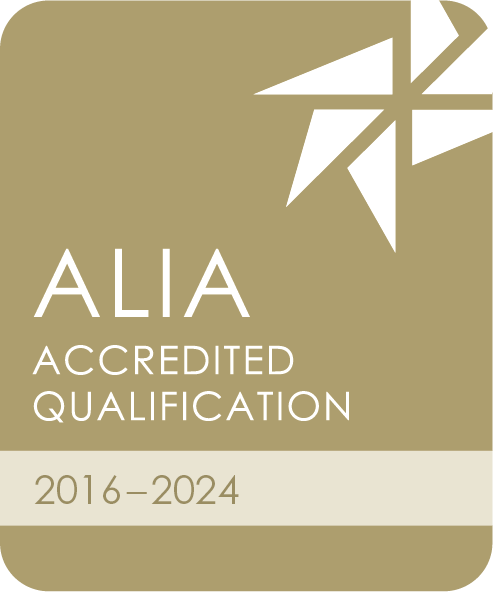
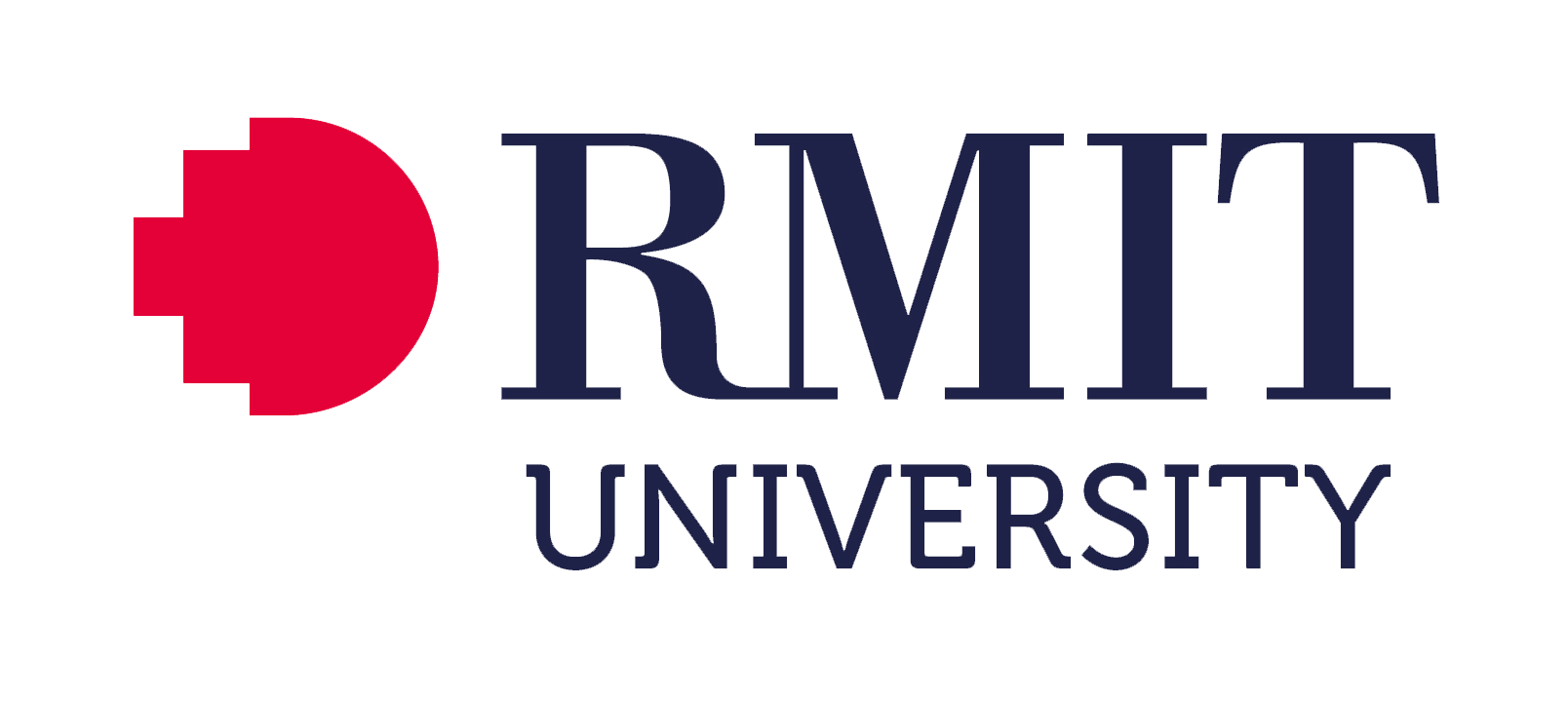
RMIT University
Dr Huan Vo-Tran
Lecturer - Information Management
phone: +61 3 9925 1699
|
Master of Information Management
Study mode: Online or On campus Melbourne
Accreditation extended for teach out until 2024
No further intake
Early exit with ALIA accredited Graduate Diploma available
The Master of Information Management (with an exit point for the Graduate Diploma in Information Management) is designed to produce accredited professionals in the library, records and information industries. You will be equipped with the skills to capture, manage, preserve, store, create, deliver and analyse information for such environments. The program has a strong emphasis on practical and managerial skills and is built on a foundation of over 50 years of research and teaching into the information industries. You can study both on campus and online (either full or part-time) and there is an opportunity to engage in study tours designed to introduce the global work environment. The Master can be completed in one and a half years (full-time, with advanced entry), giving you an internationally recognised qualification.
|
|


University of South Australia
Dr Jo Kaeding
Program Director – Information Management
|
The Master of Information Management is a two year degree, designed with strong industry support, and will prepare graduates for taking an entry level position in the information management profession. There is a melding of theory and practice in the degree so that students have the opportunity to see how a professional degree works before they enter the work force. This course has been designed for graduates to be ‘industry-ready’ and includes research plus an industry placement to equip you with the skills, knowledge, and abilities to enter the profession at an entry level librarian position. The current degrees offer Commonwealth supported fees.
|
|
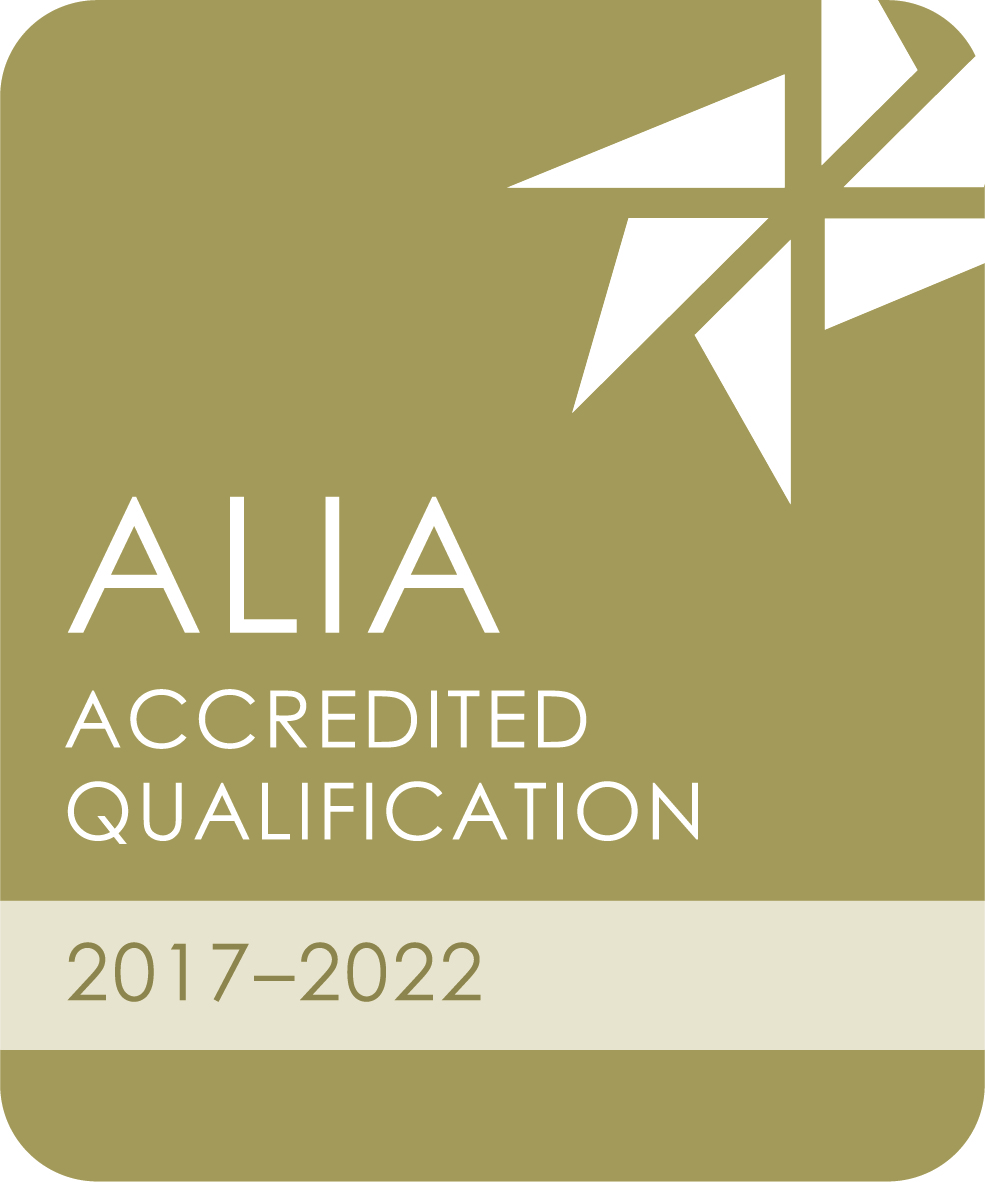

Monash University
Dr Zoe Henderson
Placement coordinator MBIS Library and Archives & Recordkeeping
email: [email protected]
|
Master of Business Information Systems
Area of practice: librarian and information specialist
Accreditation extended to cover all the students enrolled by 2022 (covering students to the end of their degree).
No Further Intake
The Master of Business Information Systems is a postgraduate degree that prepares students for careers in business-focussed IT areas such as IT management, project management, business information systems, information management or knowledge management. The course provides students with the option to specialise in archives and recordkeeping, and library and information science.
|